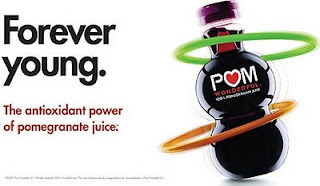
The U.S. Food and Drug Administration warned 16 food and beverage makers against making product claims that don't adhere strictly to federal labeling rules.
The crackdown is a shot across the bow of the food industry. The Obama administration has made a priority of encouraging Americans to eat more healthfully. Regulators are scrutinizing food marketing amid concerns about links between diet, obesity and disease.
In December, a federal working group proposed limiting advertising aimed at children to foods considered healthful. Last year, the FDA began work on proposed criteria companies would have to meet to make nutritional claims on package fronts.
The letters, dated from late February and posted online Wednesday, mostly rebuked companies for failing to follow rules on what they may say when highlighting the presence or absence of certain nutrients, and on what claims they can make for foods aimed at children younger than two.
For example, the package front of Dreyer's Dibs vanilla ice-cream snacks indicates the product has zero grams of trans fat per serving. But the labels lack the required adjacent reference to back-panel nutritional information, according to the FDA's warning letter to the Dreyer's, a unit of Nestle SA.
Products highlighting zero trans fat content but that also have more than 4 grams of saturated fat per serving must also refer consumers to the nutritional information, FDA rules say. The Dibs ice cream snacks have 20 grams of saturated fat per serving, the FDA letter said.
The FDA also warned Nestle about claims for certain Gerber baby foods aimed at children under the age of two. Nestle said in a statement that it would cooperate fully with the FDA.
The FDA also chastised companies for implying that consumption of their products can help treat disease, akin to taking a drug. For example, the FDA said POM Wonderful, of Los Angeles, implies on its Web site that its popular pomegranate drinks can help reduce blood pressure, clogged arteries and the progress of prostate cancer.
In an email, a POM spokesman said, "All statements made in connection with POM products are true and supported by unprecedented scientific research. We are currently reviewing the FDA's concerns and, as strong advocates of honest labeling and fair advertising, we are looking forward to working with the agency to resolve this matter. Once the FDA reviews and better understands the substantial science, we are confident that the agency will agree with our position."
A spokesman for Diamond Foods Inc., whose walnut products were cited, said it would be able to change its labels quickly and at minimal expense.
In an open letter to the industry Wednesday, FDA Commissioner Margaret Hamburg said the number and variety of label claims "may not help consumers distinguish healthy food choices from less healthy ones and, indeed, may be false or misleading."
Scott Faber, vice president of federal affairs for the Grocery Manufacturers Association, said in a statement, "As Commissioner Hamburg noted, the examples cited are not indicative of the food industry as a whole." Member companies will cooperate with the FDA to convey nutrition information clearly to consumers, he said.

No comments:
Post a Comment